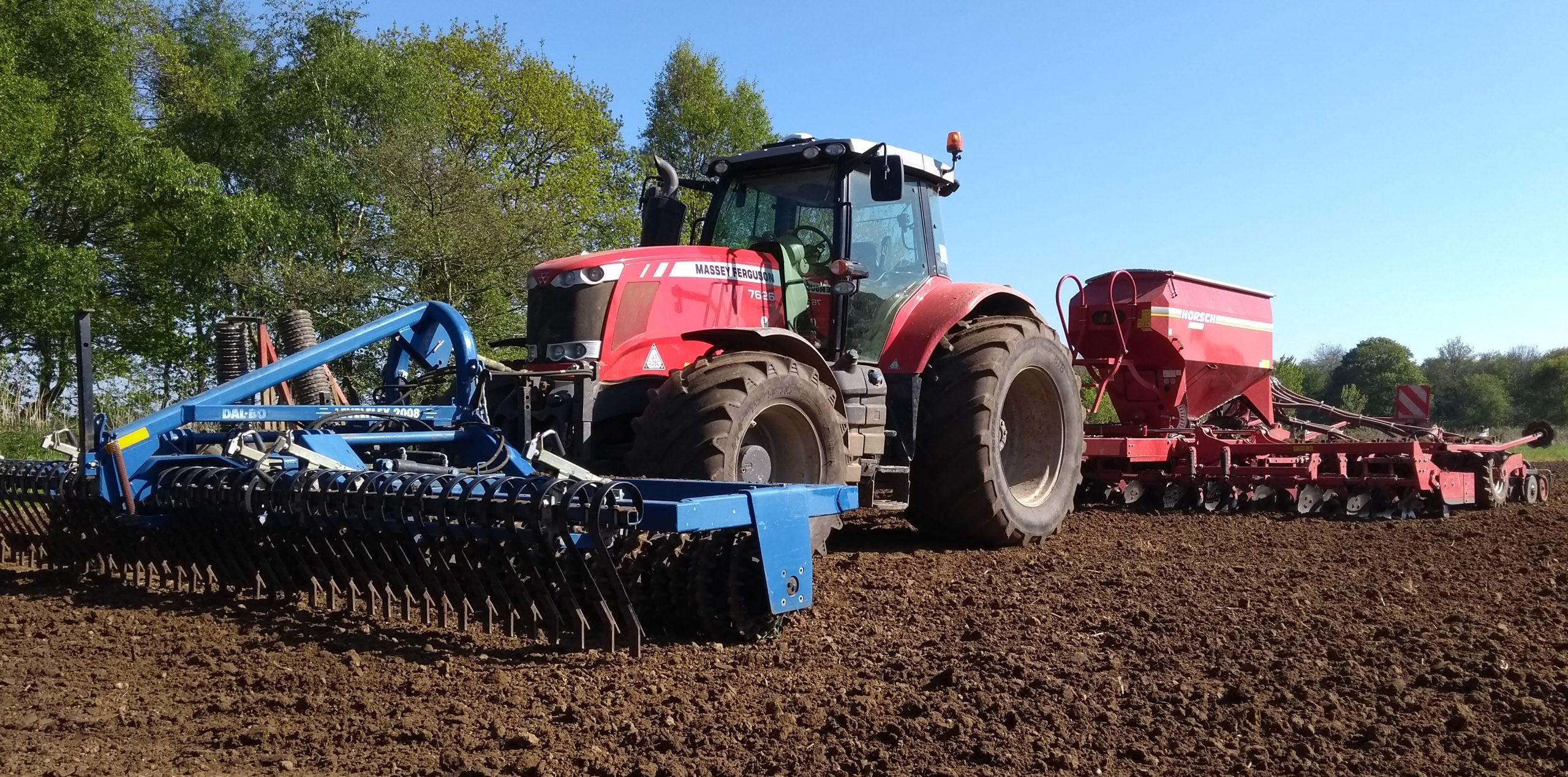News
AF Changemaker: feeling the wind beneath the business wings
25 March 2024
“I’m David Pickering, farm manager at Milligen McLeod Farming as well as Milligen McLeod Contracting (which farms 400 hectares for Milligen Mcleod Farming), based in North East Norfolk. There are another 200 hectares of contract farming arrangements as well as drilling, harvesting sugar beet and cereals for other local farms.”
“With direct government support being withdrawn, and only limited funding available under the premise of “public money for public goods”, we identified a hole in the budget which we needed to try and fill.
“We used the Farming Resilience Fund (FRF) through Brown & Co to help look for areas of the business that could be improved. We’ve already diversified a bit with wind turbines, houses and old farm buildings that have been
redeveloped and let as residential properties for local people. But we wanted to see if we were missing something. We have not acted upon anything yet but it has made us look seriously at some of the ideas.
“The FRF has helped us look at what we can do towards net zero and carbon credits. We are waiting to see how it all develops, as it still feels like a ship without a rudder.
“We’re also using FRF for benchmarking with Brown & Co, to compare our figures against other similar businesses and where we can improve our buying and selling.
“All the information from this is good information. We must now make sure we interpret it and use it in the right way.”
“You could say we’re more or less self-sufficient in energy. The two turbines, installed 11 years ago, supply us with a good income when it is windy! They went up when the feed-in-tariff was a lot more lucrative than it is now."
“At a time of massive market fluctuations in input costs, AF helps us source what we need at competitive prices. We source all crop protection, fuels and utilities through AF and the large proportion of fertiliser, seed
and machinery inputs as well.
“We have Tankscout units installed on our fuel tanks, which monitor our fuel levels and send readings back to
the AF office where the team place orders if we need them. It has taken away the concern of running out of fuel at busy times.
“We share our plans with AF and they help by providing us with the information we need, and fuel more ideas."
“I think we need to put our seatbelts on. We are in for a rocky ride.
“The subject of diversification can be divisive. As an industry we are regularly told to diversify our businesses to
maintain our income streams. But to diversify, you must find something that complements your core business, not mask issues within it. If your core business isn’t profitable, how is it going to help, or be helped, by the diversification? If a diversification can make so much money that it sustains itself and supports the core business, then should you be concentrating on that instead?
“For us, we are considering converting some more old farm buildings into two holiday properties for families caring for children with disabilities, and a swimming pool to rent out by the hour at the same site.
“We have a good livestock building that we rent out for cattle (currently empty, if anyone is interested!). We’ve also looked into taking chickens or pigs either on egg or fattening contracts.
“And we’re looking into installing another wind turbine and solar panels on some of the farm buildings to sell power back to the grid.
“Mr & Mrs McLeod have a succession plan in place, involving their 4 grandchildren who are bringing forward further ideas of development that we will explore”.
If you are interested to apply for a Brown & Co assessment of your business through the Farming Resilience Fund read this web page: www.brown-co.com/services/agricultural/future-farming-resilience-fund